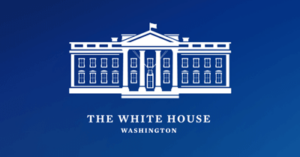Introduction
In an era of rapid technological advancements and scientific breakthroughs, the need for effective public engagement with science has never been more critical. The President’s Council of Advisors on Science and Technology (PCAST) recently addressed this imperative in a letter to the President of the United States, highlighting the importance of fostering a dialogue between research and development (R&D) agencies, experts, and the American public. Let’s explore the key points raised in the PCAST letter and the significance of advancing public engagement with the sciences.
Addressing Societal Impacts and Ethical Concerns
Emerging science and technology can shape all Americans’ lives profoundly. From addressing climate change and enhancing public health to the impact of biotechnology and artificial intelligence, these innovations offer promise and concern. While advancements hold the potential for improved health, resilience, and sustainability, they also raise ethical questions and societal concerns.
Engaging the Public in Policymaking
PCAST emphasizes the importance of engaging the American people in policymaking to ensure that public policies are well-informed by scientific understandings and community values. Achieving this goal requires two critical components: access to accurate and trusted scientific information and the ability to create dialogue and participatory engagement.
Learning from Successful Examples
The letter highlights instructive examples of successful engagement efforts, including the decision for the City of Cambridge to host the first recombinant DNA laboratories. This early and vigorous debate between scientists and citizens played a pivotal role in the economic success of biomedical research in Massachusetts, demonstrating the value of public participation in policy development.
Contemporary Engagement Initiatives
PCAST highlights contemporary examples of federal agencies engaging the public in science-informed policy development. These initiatives range from addressing climate change to healthcare policies and transportation regulations, showcasing the growing recognition of the importance of public input in decision-making.
Building Trust and Bridging Divides
While Americans generally trust scientists’ commitment to the public’s best interests, the changing media landscape and societal challenges have led to declining trust in institutions. To address this, PCAST suggests a shift towards a more inclusive and two-way communication model that enables diverse cross-sections of the public to communicate their values, concerns, priorities, and interests in policy development.
Conclusion
In a world characterized by rapid scientific and technological change, fostering effective public engagement with science is not just a recommendation; it is a necessity. PCAST’s letter to the President underscores the importance of dialogue between scientists, policymakers, and the public to ensure that policies are well-informed and responsive to the needs and values of all Americans. As we move forward, building an ecosystem where scientists collaborate with the public in all stages of the scientific process will lead to more effective policies that benefit our health, environment, national security, and general well-being.








